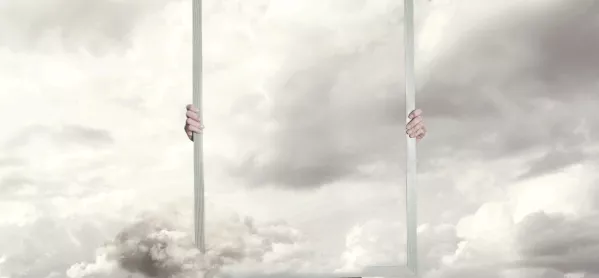Ofsted has been accused of being “virtually invisible” during the first lockdown and blamed for failing to prevent a postcode lottery in remote learning.
Education select committee chairman Robert Halfon told Ofsted’s chair, Dame Christine Ryan, that the inspectorate had “vacated the field” and gone into semi-hibernation when the Covid crisis struck.
He claimed that, had the watchdog carried out its job “more proactively” on remote learning, the pandemic’s impact on pupils’ education would not have been as extreme - which Dame Christine disputed.
Spielman: Schools put food parcels before education
Lockdown: 2 in 5 pupils did not meet remote learning target
Research: UK pupils lost a third of learning time during pandemic
Speaking at a session of the committee this morning, he said: “There is a view that, during the pandemic, Ofsted was like the hedgehog at the back of my garden and in some sort of semi-hibernation.
“In contrast to the children’s commissioner - I realise that they are very different roles - but she was very proactive all the way through in trying to get children back in school.
“But Ofsted only occasionally put their head above the parapet and they should have done more right from the start to monitor the remote education and the work going in schools.”
Dame Christine said that she did not accept that Ofsted had gone into hibernation.
Routine inspections were suspended in March as the Covid crisis escalated.
However, Ofsted’s chair told MPs today that the watchdog continued to do monitoring visits and to carry out visits where concerns were raised.
Later in the same session, Mr Halfon added: “In the first lockdown, we know remote learning was a postcode lottery - well, not even a postcode lottery because one school might have been doing it very well and, a couple of streets down, another school was doing it very differently for whatever reason - that is not necessarily to criticise the hard working staff and teachers.
“Yet it seems to me that Ofsted was virtually invisible, particularly in the first lockdown, in making it clear what kind of standards of remote learning there should be and how it should be done, and you just vacated the field.”
Dame Christine replied: “I don’t agree that the field was vacated.”
But Mr Halfon added: “The evidence is there in terms of the lost learning of pupils and the very very patchy remote learning from school to school.
“If Ofsted had been very proactive in doing its job, surely that wouldn’t have happened in the extreme way that it did in the first lockdown.”
Dame Christine said: “I am not sure that those things necessarily coincide. Schools’ responses in terms of remote learning are affected by a whole range of things that Ofsted isn’t at liberty to control...Ofsted did report, it did visit and it did give advice to the department of the basis of those visits.”
She also told the committee that Ofsted’s response to the pandemic had been judged to be “swift, decisive and agile”.
There was “no obligation” for schools to follow government remote learning guidance during the first lockdown in spring 2020.





